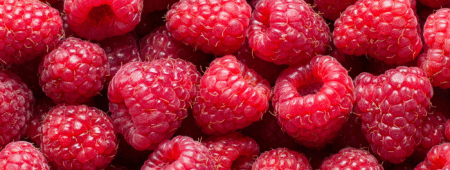Learn about eco-friendly ways to fertilise your garden
A garden is not only a space where we can relax after work or school - it is also a place where we often grow our own vegetables and fruit. For plants to grow well, they need the right fertilisation. With increasing environmental awareness, more and more people are turning to natural and environmentally friendly solutions. Would you like to join this trend?
A garden is not only a space where we can relax after work or school - it is also a place where we often grow our own vegetables and fruit. For plants to grow well, they need the right fertilisation. With increasing environmental awareness, more and more people are turning to natural and environmentally friendly solutions. Would you like to join this trend?
Organic gardening is a way to grow healthy plants without using chemicals. By using compost, natural fertilisers and methods such as crop rotation and mulching, we can create a friendly environment for both plants and beneficial insects. Growing organically is not only a way to produce tastier and healthier crops, but also a step towards protecting our planet.

Are you ready for an organic revolution in your garden? Find out more about natural growing methods and enjoy abundant harvests without burdening the environment. Here they are!
- Compost - an organic fertiliser created by decomposing organic residues such as grass, leaves, peelings and fruit and vegetable scraps. We can obtain compost in domestic settings (if you want to find out more I encourage you to read the advice "how to start a home composter"), but we can also look into the possibility of purchasing it from bio-waste treatment facilities. You have the latter option in e.g. Poznan, Warsaw, Krakow, Gdansk or Lodz, but also in smaller towns such as Raciborz. Compost increases the amount of natural humus in the soil and also increases the soil's ability to retain moisture.
- Manure - is a natural fertiliser that comes from the excrement of livestock, such as cows, horses or rabbits. Rich in nitrogen, phosphorus, potassium and other trace elements, it ensures proper plant growth.
- Green manures - these are plants that are sown to be ploughed in later. By applying this type of fertiliser, we improve the fertility and structure of the soil. The most commonly used plants for this purpose are phacelia, mustard, lupins, alfalfa and clover.
- Manures, extracts, infusions of plants - these are natural fertilisers rich in easily soluble and assimilable components such as potassium and nitrogen. In addition to their positive effects as a fertiliser, decoctions and slurries can also combat and even prevent diseases. Examples include nettle slurry - used to combat aphids - or field horsetail decoction to combat powdery mildew.
- Biohumus - is a natural fertiliser produced by earthworms from organic residues. It is a very good way of giving the plants the nutrients they need, but also humus acids and beneficial soil bacteria cultures.
By using natural fertilisers, we not only take care of the growth of our plants, but also take positive action to improve the quality of the soil, protect the environment from chemical pollutants and thus contribute to the protection of our planet. Join the growing community of organic gardeners today!



